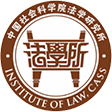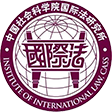 字号:
字号:小
中
大
Hong Kong's electoral system reform aimed at ensuring "patriots administering Hong Kong" will strengthen "one country, two systems" rather than undermining it as some Western politicians and media outlets claim.
On March 30, the Standing Committee of National People's Congress, China's top legislature, approved the amendments to Annex I and Annex II of the Basic Law of Hong Kong with the aim of plugging the loopholes of the electoral system of the special administrative region, and strengthening its governance and maintaining its stability and development.
Hong Kong's electoral system is a local system with strong local features, but Hong Kong is an integral part of China. That means the electoral system shouldn't run counter to the spirit of "one country, two systems".
Also, the SAR's electoral system should neither undermine the country's sovereignty and territorial integrity nor prevent the city from playing the role of a bridge connecting the Chinese mainland and other economies. These goals can be achieved only when the SAR's electoral system ensures that only "patriots administer Hong Kong".
The reform will also enhance Hong Kong's governance capacity, and thus further boost its status as an international financial and logistics hub.
Considering Hong Kong's strategic importance, the city needs a wide variety of talents to function smoothly and further enhance its global status, but the original electoral system was not conducive to fulfilling these requirements due to growing partisan fights and social rifts in the region.
Which means Hong Kong needed an electoral system that would help it to use the advantages of the Chinese mainland to further consolidate its position as a global financial and logistics center and thus boost its socioeconomic development.
The electoral system reform will help Hong Kong better safeguard local residents' right to vote. Indeed, as a society ruled by law, Hong Kong, in line with the "one country, two systems" principle, has been known for protecting people's political rights.
The reform, in fact, will help Hong Kong to adapt to the changing political and economic conditions and protect residents' right to vote, instead of being bogged down by dogmatism, stubbornly demanding direct elections to every administrative post.
Hong Kong has been acting as a bridge between the mainland and developed economies. And if some Western countries really cared about the SAR's future, they should not have encouraged and materially helped radicals to unleash mayhem in the city, which undermined its status as a global finance and logistics hub.
Yet, as stakeholders, the developed countries and multinational corporations are concerned about the electoral reforms in Hong Kong. So how can Beijing make it clear to the international community that the electoral system reform is aimed at improving the political system of the city which will create more opportunities for global companies and investors?
First, the aim of the electoral system reform is to ensure "patriots administering Hong Kong". It will not prevent people, even foreign residents in Hong Kong, from playing a constructive role in the city's financial and other sectors so long as they respect the interests of the mainland and Hong Kong residents, and the country's sovereignty and territorial integrity.
Second, the reform doesn't violate the Basic Law of the Hong Kong SAR, which talks of universal suffrage. Instead, it is aimed at plugging the loopholes in the SAR's electoral system by, for instance, adjusting the sectors of the Election Committee to facilitate wider representation. It will ensure that "patriots administer Hong Kong", better protect the country's sovereignty and national security, and help the city pursue further prosperity.
And third, the electoral system reform, which has increased the number of Election Committee members to nominate the chief executive and adjusted the rules for electing local lawmakers, aims to allow people who have different but constructive opinions to participate in the election process and work together to better promote Hong Kong's development.
Besides, by forming a committee to vet candidates seeking to run for the post of Hong Kong's chief executive, the central government has ensured high-level self-autonomy for the SAR and better implementation of "one country, two systems", the Constitution and the Basic Law of Hong Kong.
作者:陈欣新:中国社科院法学所台港澳法研究中心主任,研究员。
来源:《中国日报网》,2021年4月13日。



